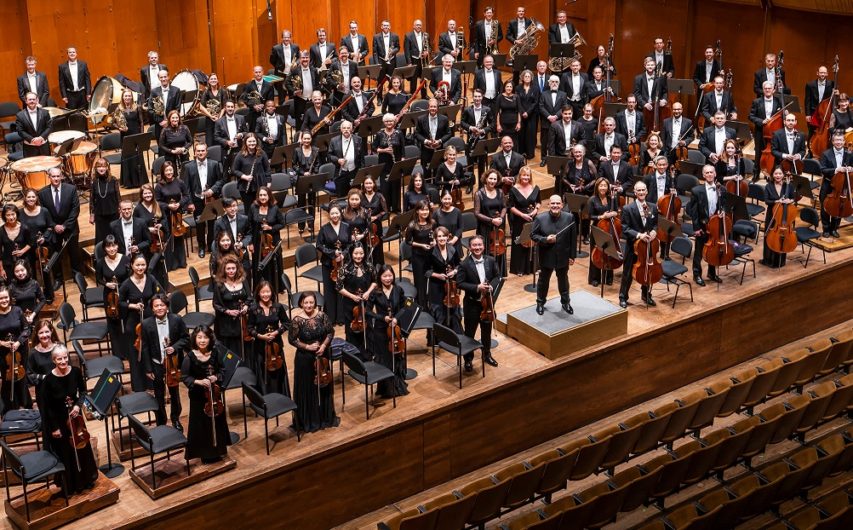Tal Bachman responds to a recent New York Times article by Tony Tommasini demanding that musical organizations ignore the relative quality of a potential musician’s play in order to ensure more visible minority players get hired:

The New York Philharmonic Orchestra, detail from a group portrait in 2018.
Photo from the New York Philharmonic Orchestra website.
Tommasini begins his piece, entitled “To Make Orchestras More Diverse, End Blind Auditions”, by decrying the racism and sexism which, he claims, kept the orchestras of yesteryear predominantly white and male. He then pays tribute to the simple practice that helped erase that racism and sexism from orchestra hiring procedures: the blind audition. Starting in the late 1960s, orchestras began ditching traditional face-to-face auditions in favour of auditions that took place behind screens. With orchestra administrators no longer able to see the race or sex of the orchestra applicant, conscious and unconscious bias in hiring choices became impossible. Musical skill became the sole criterion for winning one of those prized professional playing positions.
This meritocratic turn, Tommasini argues, proved especially beneficial to female players. Whereas in 1970, women made up only 6% of orchestras, they now make up somewhere between a third and half of an average orchestra.
I add that audiences also benefited from meritocratic hiring processes as orchestras played increasingly brilliant renditions of the classics. Those improved performances also showed greater reverence for the original composers themselves. In short, the blind audition was a big win for all lovers of musical excellence – players, living composers, and fans alike.
So why on earth would anyone now call for their abolition?
Tommasini answers this way:
Blind auditions changed the face of American orchestras. But not enough. American orchestras remain among the nation’s least racially diverse institutions, especially in regard to black and Latino artists … Ensembles must be able to take proactive steps to address the appalling racial imbalance that remains in their ranks. Blind auditions are no longer tenable.
In other words, the low number of black and Latino classical musicians means orchestras need to re-institute the old-time racial discrimination Tommasini began his article by decrying. Orchestras need to know which applicants are white and Asian precisely so they can refuse to hire them on that basis, no matter how skilled they are. Blind auditions make racial discrimination impossible, so they must be scrapped. American orchestras, writes Tommasini, should stop “passively waiting for representation to emerge from behind the audition screen”. Instead, they must realize that “removing the screen is a crucial step”.
To summarize: For Tommasini, it’s not just that justice requires injustice. It’s that justice is injustice (injustice in the form of racial discrimination). And if that reminds you of the official slogan of Orwell’s Ministry of Truth in 1984 – war is peace, freedom is slavery, ignorance is strength – you’re not alone.



